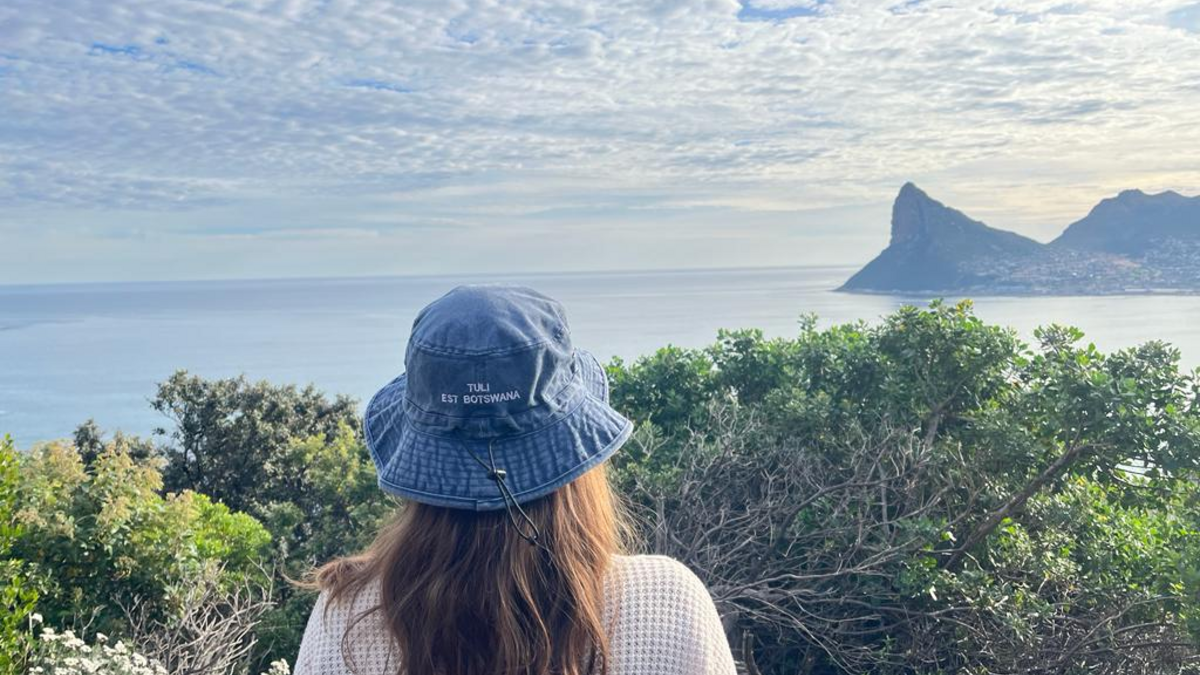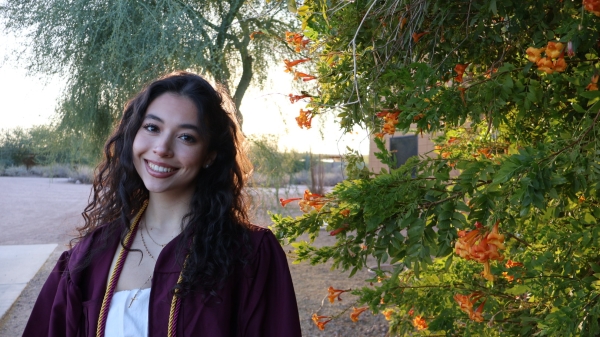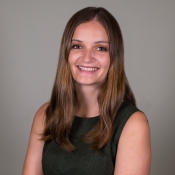Graduate who pursued PhD for conservation found passion in community building, mental health advocacy

Photo courtesy Olivia Davis
Editor’s note: This story is part of a series of profiles of notable spring 2024 graduates.
During their college careers, some students either choose to participate in research opportunities or serve their community — but Olivia Davis, who is graduating with a PhD from ASU's biology and society program, made both a priority.
Davis spent her PhD conducting conservation research with a real-world impact. Among other subjects, she studied how to improve the process of evaluating a species’ endangered status and created a metric that the U.S. Fish and Wildlife, which is responsible for protecting endangered species in the U.S., has already agreed to adopt to more effectively protect the environment.
She’s extending the impact of that work through writing about it in creative nonfiction, which helps her show why conservation — and her research along with it — is meaningful, both personally and socially. Now that she’s completed her dissertation, one of her next goals is to turn the story of her PhD into a nonfiction book.
Amid all that work, Davis has also tirelessly served her community. In addition to constantly organizing and facilitating events to get her peers together, from book clubs to sustainability committees to Brown Bag seminars, she also served as the mental health chair on the e-board, or the student government for the School of Life Sciences.
In that role, Davis implemented training that enabled faculty to recognize signs of distress in students and get them help. She also held reoccurring events to connect students with mental health counselors. Even though Davis is no longer the mental health chair, she’s set a precedent of caring about mental health within her department, both in and out of her e-board role.
It’s difficult to understate the impact Davis has had on her peers; other graduate students in the biology and society program recognize her as central to their community.
“Olivia is the person who gets everyone feeling comfortable in a non-judgmental space and inspires others to invest in their community, because she always does it so selflessly,” says Alejandro Bellón, a fellow PhD candidate.
Cassi Lyon, another recent biology and society graduate says, “Olivia has become a resource for both students and faculty in SOLS (School of Life Sciences). I have been in meetings where a faculty member goes ‘Ah, I have to ask Olivia about that.’ It’s impressive that Olivia has become so integrated in our community that both her peers and mentors go to her for advice.”
“Olivia is one of the most caring, thoughtful and selfless people in SOLS," says PhD candidate Baylee Edwards. "She is always the first to volunteer to help with a project, and she consistently attends events to support the department. And on a human level, she's just incredible. She remembers small details like what you were going to be doing over the weekend and makes a point to ask you how it went, and even when she's stressed about her own work, she always finds time to make sure everyone else is doing okay.”
Luckily, the community won’t be losing Davis just yet: she plans to stay at ASU, but instead of focusing on conservation, she’ll be working in an NSF-funded postdoctoral position with the Cooper lab to research graduate student experiences with mental health, in hopes of finding ways to make people like her feel less alone.
Question: What are you most proud of from your time at ASU?
Answer: A lot of the dialogue I’ve gotten going in SOLS about mental health. The grad office was really receptive when I was mental health chair for the e-board, which was a new position ... We connected with ASU Counseling Services, got to know them and created initiatives within our control. We did events like surveying students about mental health, a rock-climbing event, a sound healing event, a bi-weekly coffee where people from Counseling Services came and talked to students and we also implemented training for faculty. We’re hoping to use that as a model for ASU broadly.
Q: What was your favorite spot on campus for studying, meeting friends, or thinking about life?
A: I liked the Gerber lab space. Especially during my time here, we really made it a community space, which is nice because grad school can be lonely and isolating. But also, outside the writer’s house. And being able to have the writing world so close to the science building, it feels very poetic.
Q: What are your plans after graduation?
A: I’ll be doing a post-doc with Katey Cooper where I will be making a video repository of scientists talking about their failures, and having grad students watch these videos and see how it impacts them based on identity and mental health conditions. We’re hoping that will start a broader dialogue about failure in science because there’s a lot of imposter syndrome that comes from people thinking science always needs to look a certain way. So we’re hoping that will help graduate students feel less alone.
More Sun Devil community

Hundreds of new Watts College alums celebrate during fall ceremony
Hundreds of new graduates celebrated their first day as Arizona State University alumni Dec. 17 at the Watts College of Public Service and Community Solutions fall 2024 convocation ceremony…

Passion for human behavior drives first-gen student to major in psychology
Editor’s note: This story is part of a series of profiles of notable fall 2024 graduates.Natalie Motta is a driven and accomplished young woman who embodies resilience, ambition and a…

ASU grad turns interest in true-crime podcasts into passion for forensic psychology
Editor’s note: This story is part of a series of profiles of notable fall 2024 graduates.Kymberlin Quackenbush exemplifies resilience and ambition as she prepares to graduate from ASU’s New…
